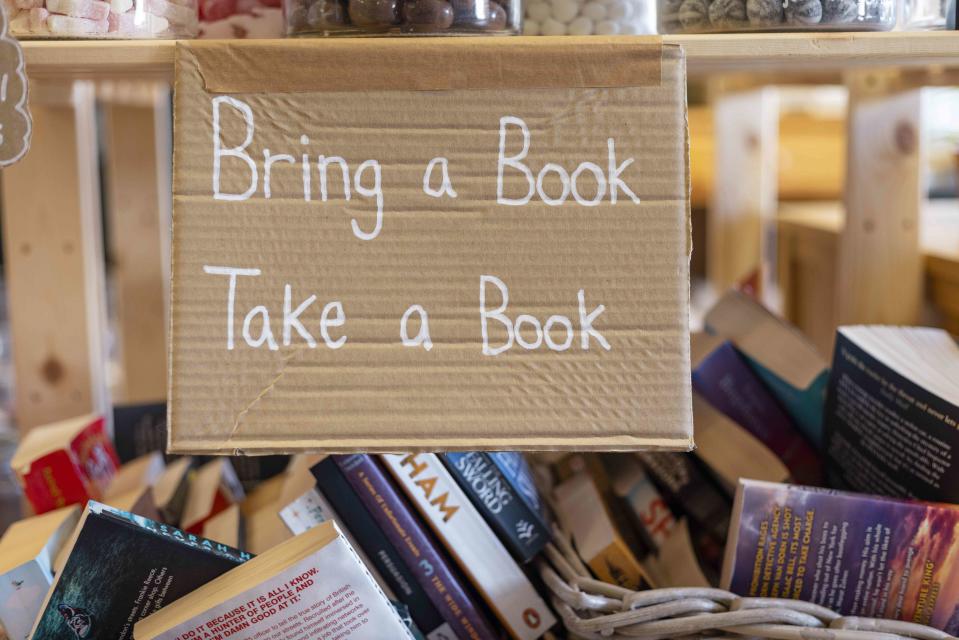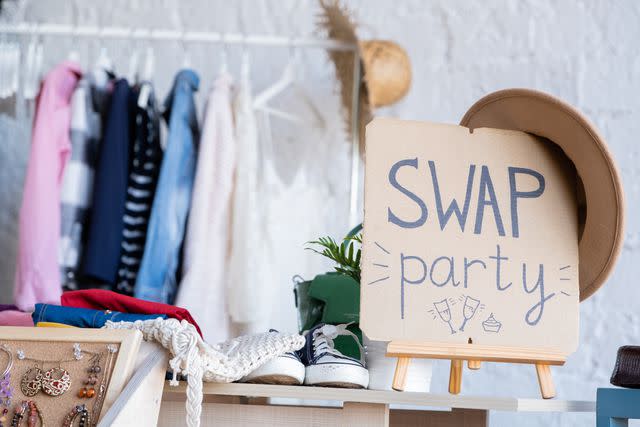Stop Buying New Things: Swap, Share, Borrow Instead
Collaborative consumption is at once simple yet revolutionary.

Do you really need that specialized power tool forever or just for the day? Should you invest in a full set of camping equipment, even if you’re not sure your family will enjoy it? Isn’t there someone out there who wants to trade those size 8 ice skates for a size 9?
If you ever find yourself pondering questions like this, welcome to collaborative consumption—a concept of organized sharing and swapping. Although peer-to-peer sharing may have been a tenet in communities of lore, our modern this-is-mine culture has taken us away from what seems like such practical common sense. But the times, they are a-changin’.
Privately-held clothing and book swaps have become a very practical social pastime among friends, but now the premise is spreading into more official capacities. Sites and services are popping up to facilitate the simple concept: You can get what you need without buying it. The arrangements are manifested in a number of ways.
There are sites that help to connect people with stuff to lend to people who wish to borrow. Some places, like Yoodlize, arrange rentals; some create swaps, while others create communities of sharers. And there's no shortage of creativity. Take, for example, Shared Earth, which connects people who have land with people who want to garden or farm.
Many mega-retailers have rental options, think AutoZone for specialty auto-repair tools or Home Depot for tool rental. Chances are your local hardware store has rental options as well.
Many of the apps and websites come and go, and many are based on specific communities. So look around and see what you can find. Even using something like Facebook Marketplace for buying and selling used items will allow the seller to not add something to the landfill and the buyer to not purchase a new item to eventually add to the waste stream.

With a little research, you can find pretty much anything; of course, there's AirBnB, but there are also places like Turo for cars and HomeExchange for vacation houses. You can also use this idea at the very local level; start or participate in a little free library or a little free pantry, initiate a clothing swap in your neighborhood, or approach a neighbor about swapping some of your lemon bumper crop with their obvious zucchini surplus.
Related: 6 Steps to Hosting a Successful Clothing Swap
It’s a brilliant model of sustainability—no new stuff to clutter the landfill, yay! But there is a beneficial emotional aspect as well. Not only in community-building but in that the lending element requires trust, and being trusted feels good. Paul Zak, founding director of the Center for Neuroeconomics Studies at Claremont Graduate University, has shown that people get a spike of the pleasant neurotransmitter oxytocin when they’re entrusted with another person’s goods. “We’re gregariously social creatures, and one way we can exhibit that sociability is by sharing our things,” he says.
Collaborative consumption is at once so simple yet so revolutionary. It replaces “beg, steal, and borrow” with “lend, share, and swap.” It’s sustainable, the sense of community feels great, and that little rush of oxytocin doesn’t hurt either.

